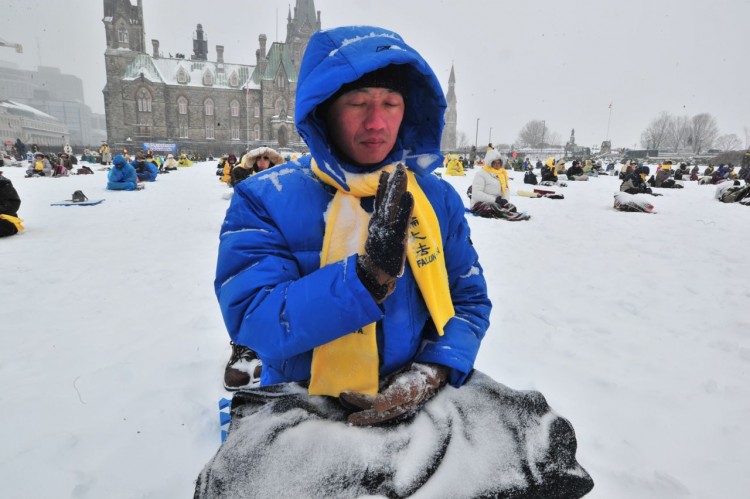OTTAWA—Parliament Hill was swept by snowflakes Tuesday as several hundred Falun Gong practitioners held a mass meditation and urged Prime Minister Stephen Harper to raise their plight on his upcoming trade trip to China.
The PM heads for Beijing next week in an effort to get oil-sands crude to market in China, despite opposition to a pipeline critical to that plan. Meanwhile, China’s communist regime faces its own problems including growing unrest at home and questions about its stability.
The tension between trade with China and calling the regime out for its abuses has been a problem for successive Canadian governments.






